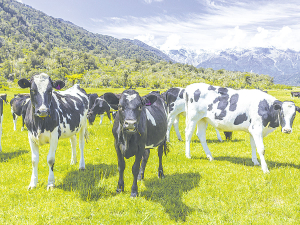Start with the board — Editorial
Why is Fonterra in a pickle? Is the death of democracy and a blob of arrogance in Fonterra to blame for the current crisis?
 The dairy industry has lost its mojo in the last six or seven years, according to a leading dairy farmer, Trevor Hamilton.
The dairy industry has lost its mojo in the last six or seven years, according to a leading dairy farmer, Trevor Hamilton.
The dairy industry has lost its mojo in the last six or seven years, according to a leading dairy farmer, Trevor Hamilton.
He says it appears that many people in the industry today are more interested in having a lifestyle rather than having a strong focus on profitability.
As a result, the corporate farmer believes the industry has gone backwards instead of forwards. He says in his case he looks at his farming operation, which is based in both the North and South Islands, as strictly a business designed to make a profit.
“Dairy farming isn’t a hobby as far as I am concerned,” he says.
Hamilton says there appears to be a lot more focus nowadays on alternative forms of dairy farming such as once-a-day or alternate day milking. He cites regenerative agricultural and organic farming as systems which don’t make dairy farming more profitable.
He says dairy farming is about growing as much pasture as you can and utilising that pasture. He says the evidence in Dairybase states, the more grass you grow, the better you utilise that feed, and add cheaper forms of supplement where necessary, the more profit results.
“But we seem to have been dodging away from that to the extent that profitability is not a high priority in the industry and so the result of that is we are seeing the milk pool in NZ on a gradual decline,” he says.
Hamilton says despite being better educated, some people in the industry don’t seem to embrace the proposition that the only way to grow a business is to be more profitable. He says, if they want help from the banks, they need to meet the expectations of the banks, who ask ‘are you profitable now and what is your strategy to be profitable in the future?’
“The banks think about one thing only – your financials,” he says.
Hamilton says a factor which is creeping into the dairy industry is what he calls ‘add-ons’ – a good example being cow collars. He says it’s interesting that one company has reduced the price of these by 37% recently and he questions whether people buying them are doing so to improve their profitability or for lifestyle reasons.
In his opinion it is quite sad that the industry now needs a payout of more than $8/kgMS to make money. He says a lot of farmers won’t make a profit this year on $8/kgMS and it would be a brave person who thinks the payout will be better next year.
“The industry is marginal and it’s the margin over a milksolid that determines profitability – just like any other business – and not all the addons are profitable,” he says.
Horticulture New Zealand (HortNZ) says a new report projects strong export growth for New Zealand's horticulture sector highlights the industry's increasing contribution to the national economy.
Fonterra shareholders say they will be keeping an eye on their co-operative's performance after the sale of its consumer businesses.
T&G Global says its 2025 New Zealand apple season has delivered higher returns for growers, reflecting strong global consumer demand and pricing across its Envy and Jazz apple brands.
New Zealand's primary sector is set to reach a record $62 billion in food and fibre exports next year.
A new levying body, currently with the working title of NZWool, has been proposed to secure the future of New Zealand's strong wool sector.
The most talked about, economically transformational pieces of legislation in a generation have finally begun their journey into the statute books.